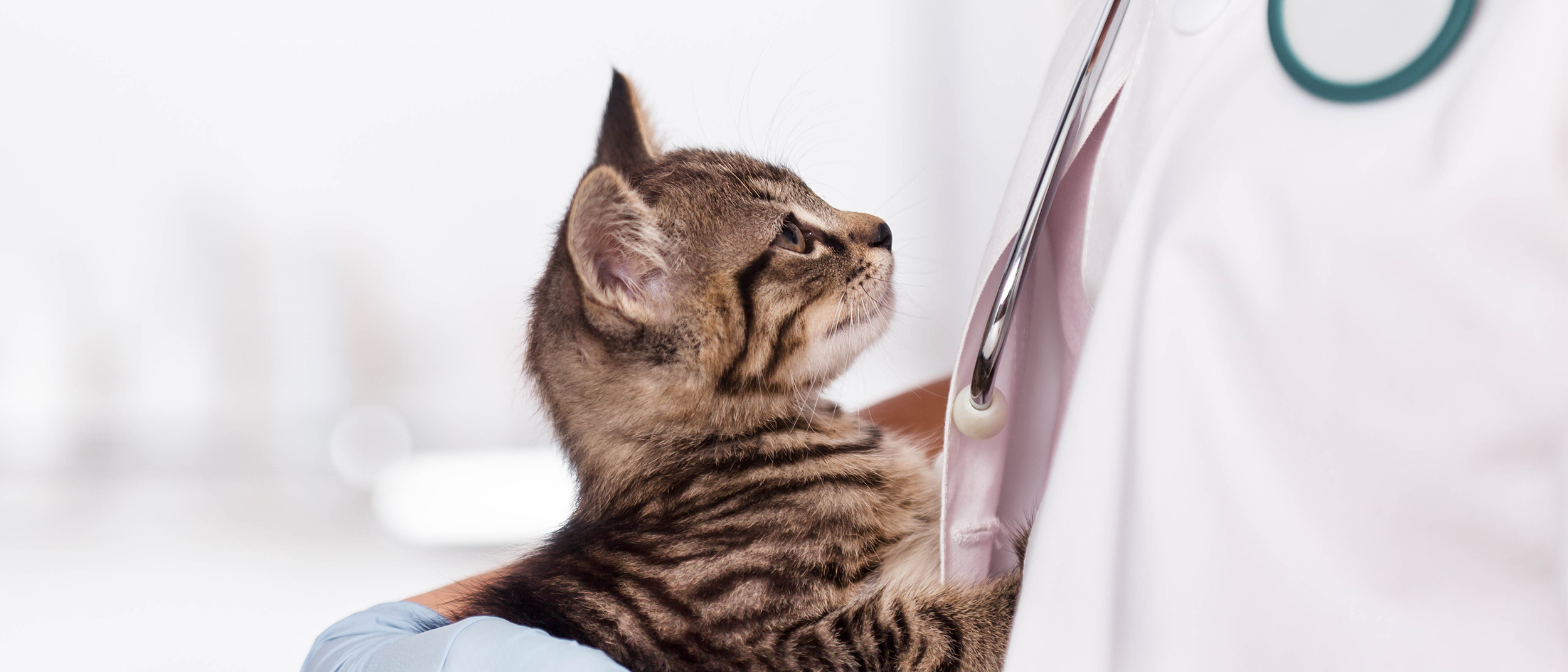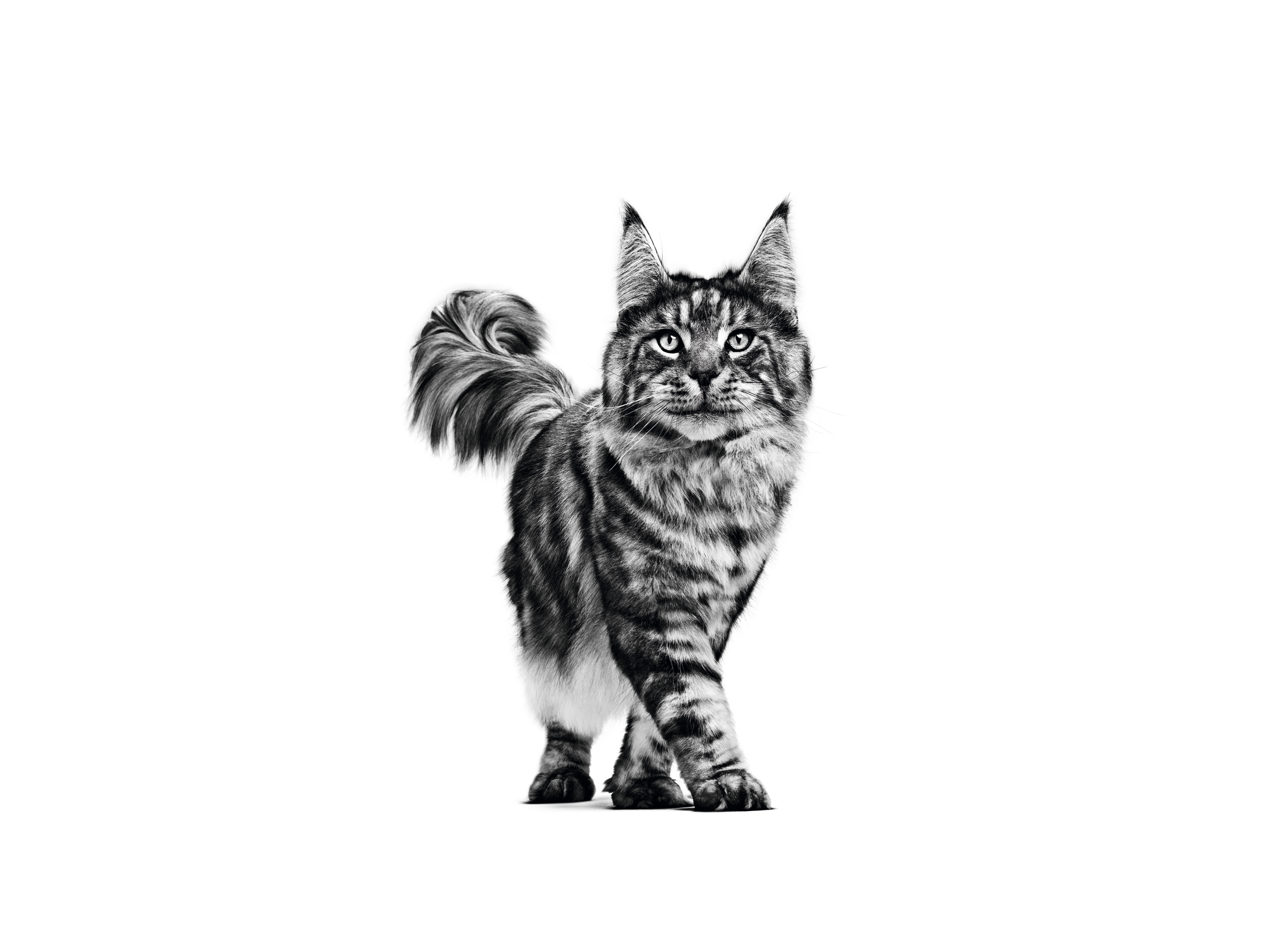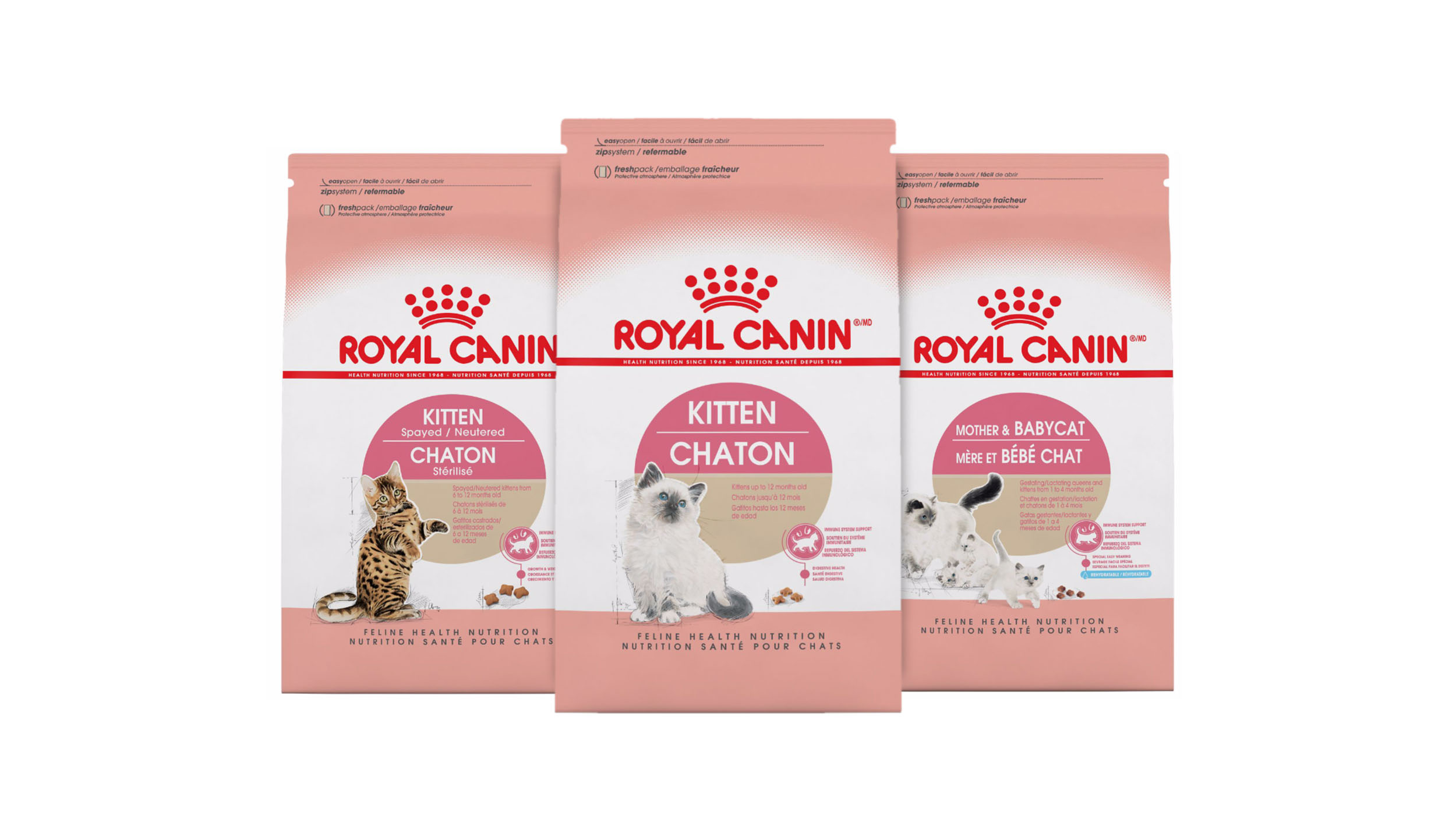Kattafár

Hvað er kattafár?
Kattafársveira (FPV), einnig kölluð kattaparvóveira, er mjög smitandi og mögulega banvænn veirusjúkdómur sem kettlingar og fullorðnir kettir þjást af.
Hver eru einkenni kattafárs?
Kettlingur eða köttur sem þjáist af FPV mun sýna nokkur mismunandi einkenni. Vertu alltaf vakandi fyrir eftirfarandi einkennum:
- Hiti
- Þunglyndi
- Uppköst
- Niðurgangur (oft blóðugur)
- Vökvatap
Það getur einnig leitt til mjög skyndilegs dauða. Þeir kettir sem lifa af fyrstu dagana verða ónæmisbældir og missa virkni ónæmiskerfisins. Það er vegna þess að veiran eyðileggur rauðu blóðkornin sem berjast gegn smitum og leiðir til þess að kötturinn getur auðveldlega fengið aukasýkingar á borð við blóðeitrun.
Ef læða smitast þegar hún er kettlingafull er líklegt að hún missi fóstur, kettlingarnir fæðist andvana eða með óeðlilegan heilaþroska (cerebellar hypoplasia).
Er kattafár enn algengt hjá köttum og kettlingum?
Með víðtækri bólusetningu hefur tekist að koma böndum á FPV, en sjúkdómurinn getur þó enn valdið faraldri meðal katta í athvörfum og villikatta. Þegar það gerist veldur það mjög hárri dánartíðni.
Hvað annað ætti ég að vita um kattafár?
Það fyrsta sem þarf að hafa í huga er að það er mjög smitandi. Nánar tiltekið orsakast það af parvóveiru sem getur þrifist í langan tíma í tilteknu umhverfi – nokkrar vikur eða meira eftir aðstæðum.
Veiran getur því dreifst undir fótum. Þess vegna er mikilvægt að bólusetja kettlinginn þinn, þar sem smithættan er veruleg, jafnvel þótt hann fari aldrei út.
Ætti ég að láta bólusetja kettlinginn minn fyrir kattafári?
Bólusetning gegn FPV er nauðsynleg fyrir alla ketti. Bóluefnum er skipt í tvo flokka, „kjarnabóluefni“ og „ráðlögð bóluefni“. Allir kettlingar og kettir þurfa að fá öll kjarnabóluefni, óháð lífsstíl. Kattafár telst til kjarnaflokksins ásamt herpesveiru og bikarveiru.
Mikilvægt er að dýralæknirinn gefi nýja kettlingnum þínum þessi bóluefni.
Hvenær ætti kettlingurinn minn að fá FPV-bólusetningu?
FPV-bólusetningin fæst með tveimur sprautum sem gefnar eru með þriggja til fjögurra vikna millibili. Kettlingurinn þinn gæti hafa fengið fyrstu sprautuna áður en þú fékkst hann, þar sem gefa má fyrsta skammtinn frá sjö til níu vikna aldri.
Kannaðu alltaf hvort kettlingurinn sé búinn að fá fyrstu sprautuna áður en þú ferð með hann heim. Þegar heim er komið þarftu að hafa samband við dýralækni til að skipuleggja seinni sprautuna.
Hvenær verður kettlingurinn öruggur fyrir veirunni?
Kettlingurinn þinn verður ekki öruggur fyrr en nokkurn tíma eftir seinni sprautuna og því ættirðu að halda honum innandyra þangað til.
Nokkur mismunandi fyrirtæki framleiða bóluefnin og er ferlið mismunandi milli þeirra svo þú skalt spyrja dýralækninn hvernig nákvæmlega skuli skipuleggja sprautur kettlingsins þíns.
Þarfnast FPV-bóluefnið endurbólusetningar?
Kettlingurinn þinn þarf að fá endurbólusetningu einu ári eftir að hann var bólusettur í annað sinn og síðan árlega upp frá því.
Ónæmið gegn mismunandi sjúkdómum varir í mismunandi langan tíma og því fær kötturinn þinn ekki endilega sömu endurbólusetninguna á hverju ári. Ræddu við dýralækninn þinn þar sem hann getur útskýrt við hvaða sjúkdómum verið er að bólusetja hverju sinni.
Eftir hverju ætti ég að horfa áður en ég vel kattabú?
Þegar kattafár hefur komið upp hjá kattahópi er mjög erfitt að losna við það vegna eðlis veirunnar.
Öll góð kattabú ættu að hafa innleitt ákveðnar aðgerðir til að koma í veg fyrir útbreiðslu þess og draga úr áhrifum veikinnar á heilbrigði katta.
Grípa þarf til strangra hreinlætisráðstafana, þ.m.t.:
- Aðgreining - koma upp ákveðnum svæðum fyrir sóttkví og sjúkrastofu
- Framstreymisregla - setja upp einstefnuhringrás frá köttunum sem eru í mestri áhættu til þess hluta sem hýsir kettina sem eru í minnstri áhættu
- Fullnægjandi hreinsun og sótthreinsun - sum sótthreinsiefni virka ekki gegn FPV og því er nauðsynlegt að tryggja að hreinlætisvörurnar sem kattabúið notar virki gegn veirunni
Mikilvægt er að spyrja á kattabúinu hvort þessar fyrirbyggjandi ráðstafanir séu fyrir hendi.
Þar sem FPV er jafn smitandi og raun ber vitni og getur verið banvænt skiptir lykilmáli að ganga úr skugga um að kettlingurinn hafi fengið viðeigandi sprautur á réttum aldri og þeim hafi verið fylgt eftir með árlegum endurbólusetningum. Ef þú ert ekki viss um eitthvað sem tengist bólusetningaráætlun kettlingsins skaltu ekki hika við að ráðfæra þig við dýralækni.

Finna dýralækni
Ef þú hefur áhyggjur af heilsufari kattarins þíns skaltu ráðfæra þig við dýralækni.

Sérsniðin næring fyrir kettlinginn þinn
Næringarríkt fóður sem styrkir náttúrulegt varnarkerfi kettlingsins og stuðlar að heilbrigðum vexti og þroska meltingarfæranna.
Líkaðu við og deildu þessari síðu